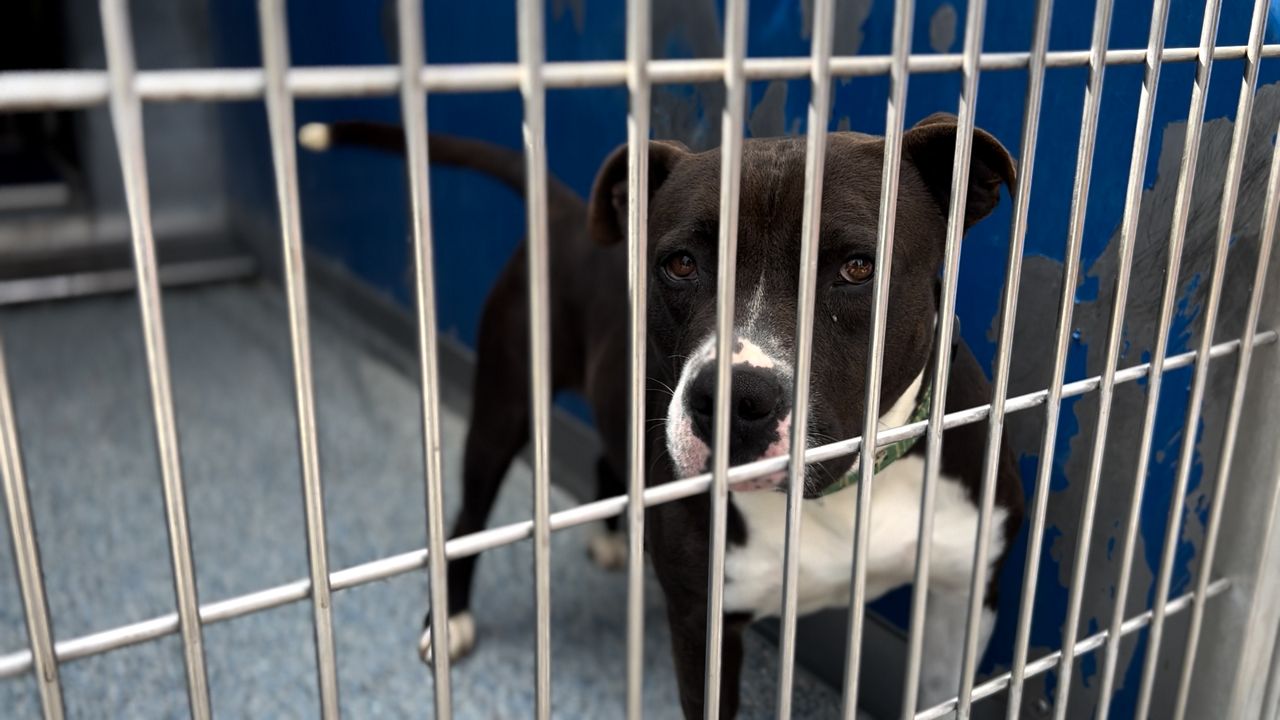LOS ANGELES (CNS) — Los Angeles City Councilwoman Eunisses Hernandez announced Monday that she introduced a motion seeking to establishing a moratorium on issuing breeding licenses, in an attempt to address overpopulation in the city’s six animal shelters.
The motion, co-introduced by Councilwoman Traci Park, also directs the Department of Animal Services, or also known as LA Animal Services, to report back to the City Council with data on the number and cost of breeding permits issued last year, as well as analysis of other cities that have banned the issuance of breeding permits.
“It is unacceptable for the city to continue issuing breeding permits while thousands of animals are suffering from overcrowded conditions in our animal shelters,” Hernandez said in a statement. “While many factors have contributed to this crisis, halting the issuance of breeding permits is an immediate step the city can take to reduce the strain on the system.”
City animal shelters are facing an extreme overcrowding crisis, resulting in dire and inhumane conditions for the animals in Animal Services’ care.
Numerous factors have contributed to the crisis, including a lack of pet-friendly rental units and insufficient rates of pets being spayed and neutered.
Despite the current conditions, few barriers currently exist for members of the public to obtain a breeding permit, and as of July 31, LAAS issued more than 1,100 breeding permits for this calendar year. High rates of permitted and unpermitted breeding impact both the inflow and outflow of animals from the city’s shelter system, adding further strain to the system, according to Hernandez’s office.
“We must act now to help alleviate the burden on our overflowing animal shelters,” Park said in a statement. “While it’s not the only solution, every effort counts in creating relief at our shelters and ensuring every animal finds a home.”
Last week, Hernandez announced a special Neighborhoods and Community Enrichment Committee meeting slated for Sept. 27 at 8:30 a.m. in Council Chambers.
Hernandez, who chairs the committee, said the meeting will focus on LAAS’ animal shelter crisis and what steps LAAS and the city at-large need to take to “immediately protect the health and wellbeing of animals who are in its care.”
Hernandez introduced the motion days after Staycee Dains, general manager of LAAS, laid out a plan to address the overall status of the city’s six shelters — which includes calling on Angelenos to help relieve overcrowding by adopting shelter animals.
Dains said at last week’s LAAS Commission meeting that the city issued about 1,200 breeding permits so far this year, and is on pace to finish the year with about 1,800. She said there are currently no criteria to get a breeding permit other than to pay a $235 fee.
“This is a problem, because when our shelters are over capacity, we have no business issuing breeding permits. It is antithetical to what we are trying to do,” said Dains, who took over the top post at LAAS this summer after the department operated without a permanent GM since April 2021.
“We should only consider issuing a breeding permit when our shelters are at or below 50% capacity,” she said. “Anything else is pouring gasoline on a fire.”
Addressing breeding permits is one aspect of LAAS’ plans to improve the animal shelters and provide better care to the animals and caretakers at the shelters.
LAAS is also encouraging Angelenos to adopt shelter animals if they can. The department has animals vaccinated, microchipped, spayed/neutered, given flea treatment and other care to ensure their health before they go to their new homes.



